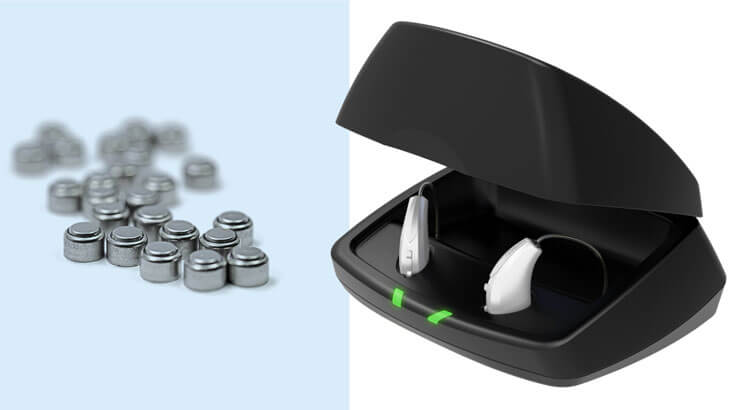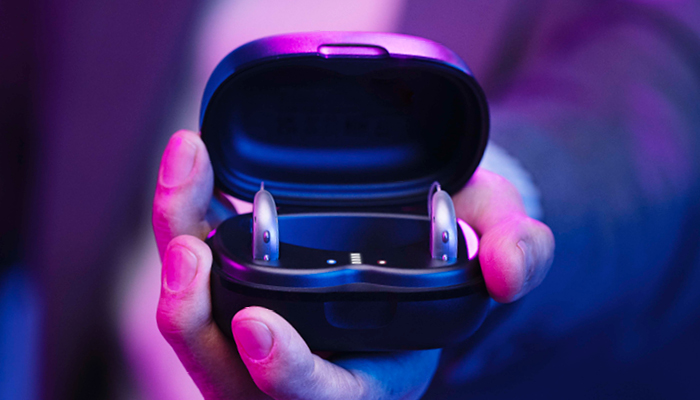Batteries
Discover our best hearing aid technology.
What are the types and sizes of hearing aid batteries?
Hearing aid batteries come in four sizes — numbered and colored universally (see chart below). The battery size you need will depend on the hearing aid you get.
Hearing aid batteries
Types and sizes
Typical uses
Mini RICs
CICs
IICs
Mini BTEs
RICs
ITCs
BTEs
ITEs
Power BTEs
Size & color
 Size 10
Size 10
 Size 312
Size 312
 Size 13
Size 13
 Size 675
Size 675
How long do hearing aid batteries last?
Standard hearing aid batteries last anywhere from 3 to 22 days, depending on the type of hearing aid, the battery type and capacity, how often the hearing aid is used, and how much streaming you do.
How do I know if my hearing aid batteries need changing?
Depending on how often you use your hearing aids, you may need to change batteries once a week or twice a month. You should change your hearing aid batteries if either of these occur:
- Sound becomes distorted or you have to turn up the volume on your hearing aid more than normal.
- The “low-battery” beep or voice sound comes on, indicating that the battery is getting low and should be changed.
What is the protective seal on hearing aids for?
The small, sticky, colored tab on each battery is also a protective seal. These protective seals keep the battery from discharging power. A hearing aid battery begins to discharge as soon as the seal has been removed — so don’t remove it until you’re ready to use it.
How can I maximize my hearing aid battery's life?
Once you remove the protective seal from a battery, it begins to discharge power. However, there are things you can do to help minimize battery drainage:
- When not wearing your hearing aid, turn it off or open the battery door. Note: you should always open the battery door at night to allow moisture to escape and to help keep the battery from corroding.
- If you won’t be using the hearing aid for an extended period of time, take the battery out completely. You can store it in the protective case for your hearing aids.
- Avoid storing batteries and hearing aids in extreme temperatures, hot or cold, as they can quickly drain battery power and shorten a battery’s lifespan.
Useful hearing aid battery care tips
- Store hearing aid batteries at normal room temperatures.
- Do not refrigerate.
- Wash your hands thoroughly before changing batteries. Grease and dirt on the batteries may damage the hearing aid.
- Leave the battery compartment of your hearing aid open at night so moisture can escape. Doing so will keep the battery from corroding and damaging the hearing aid.
- Remove dead batteries immediately. A completely discharged battery may swell and become difficult to remove.
- Hearing aid batteries often lose power very suddenly, so it's smart to carry an extra set of batteries with you at all times.
- To protect against discharging your backup batteries, keep them away from coins, keys or other metal objects.
What about rechargeable hearing aid batteries?
More and more hearing aids allow for rechargeable hearing aid batteries or feature rechargeable technology. Go here to see our lineup of rechargeable hearing aids.
Next: Costs and financingYou might also like:
-

Disposable vs. rechargeable hearing aids
Once upon a time, you couldn’t get rechargeable hearing aids. Now you can. What’s the difference?
Learn the difference -

Tips to maximize battery life
Want tips to get the most out of your hearing aid batteries? We’ve got ten good ones for you.
Get the tips -

Are rechargeable hearing aids for me?
Wondering if you should look into rechargeable hearing aids?
Learn more